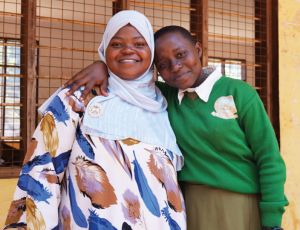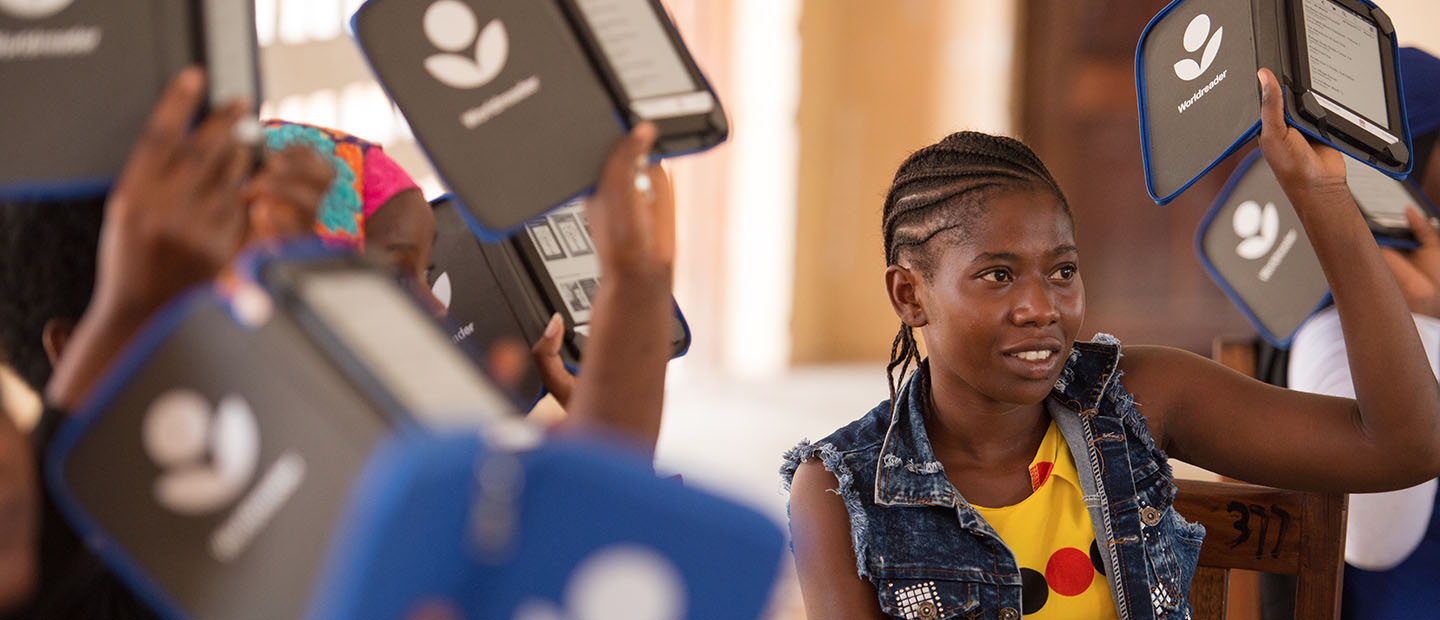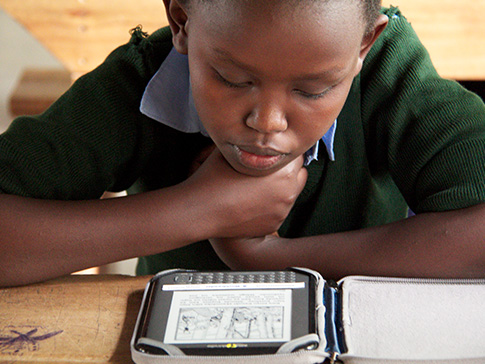
When she thrives, we all thrive
Together this giving season, we can make a difference that ripples outward to benefit everyone.


In Tanzania, the risk of school drop-out rises significantly during the transition from primary to secondary school, when school-going costs increase and the teaching language switches from Swahili to English.
With e-readers, I walk with a big library in my hands and my bag. I feel proud of using this device because they are attractive, full of knowledge and easy to carry; truly technology has simplified my learning.
Secondary Student, Tanzania
A pilot project implemented by CAMFED and Worldreader between 2015 and 2017 has driven up learning outcomes for marginalized children in Iringa district. With e-readers, students can access a wide variety of English language books (in a context where they are scarce), as well using as a vocabulary function to look up unfamiliar words. The devices also encourage a more collaborative way of learning and facilitate whole school literacy activities including debate competitions.
For 15 year old Jamaida, a Form 2 student from Iringa district, this initiative boosted her both academically and personally. She reported that, “the program has helped me learn English and enjoy learning”. Having won an award in an inter-school debate competition, she is studying hard with her sights set on one day becoming a teacher.
Alongside access to the e-readers, the most marginalized girls in schools also received financial and psychosocial support that forms part of CAMFED’s holistic school-based interventions.
Staff and alumnae, including Lydia Wilbard, National Director of CAMFED Tanzania, discuss the positive impact of tech-assisted learning.
To help deliver this, CAMFED enlisted and trained CAMA members in an extension of the Learner Guide program, working with Worldreader to introduce e-reader technology and approaches for using it to boost learning. This is beneficial both for vulnerable students, who are provided with mentors and role models, and for the young women whose prospects are improved by gaining valuable work experience. This can open doors for recent school graduates as they begin their transition to independent, adult life.
The difference I have brought about is that teachers say the students really love to learn when we, the Learner Guides, are in the classroom… Also, when the teacher is away, I am closer to students and in a position to advise them as their sister. We share our successes as role models.
Yudita Luago, CAMA Member & Learner Guide, Tanzania

A student in Iringa, Tanzania, using an e-reader as part of the English literacy program.
Key results after the two-year pilot project:
The fact that rural households in Iringa are among the poorest in Tanzania, makes these results all the more significant. The project has benefitted all participants, with particular uplift to girls and the opportunity for young women to step up as leaders of change.
Justin Cohen $2000
Mireille Leclerc $26.6
Margaret Bloom £150
Margaret Whelan £57.4
Robert Dobbie £100
Dina Maher $526
Katherine Green £124.9
Cheryl Guyton $211
Alec & Chrissie Hawkes $1367
katie morris $5000
Lvannah Abrams $263
Deborah Mowery-Evans $263
Ben Sowter £52.2
Drs Joseph and Brenda Williams $132
Roger Cyr $10.9